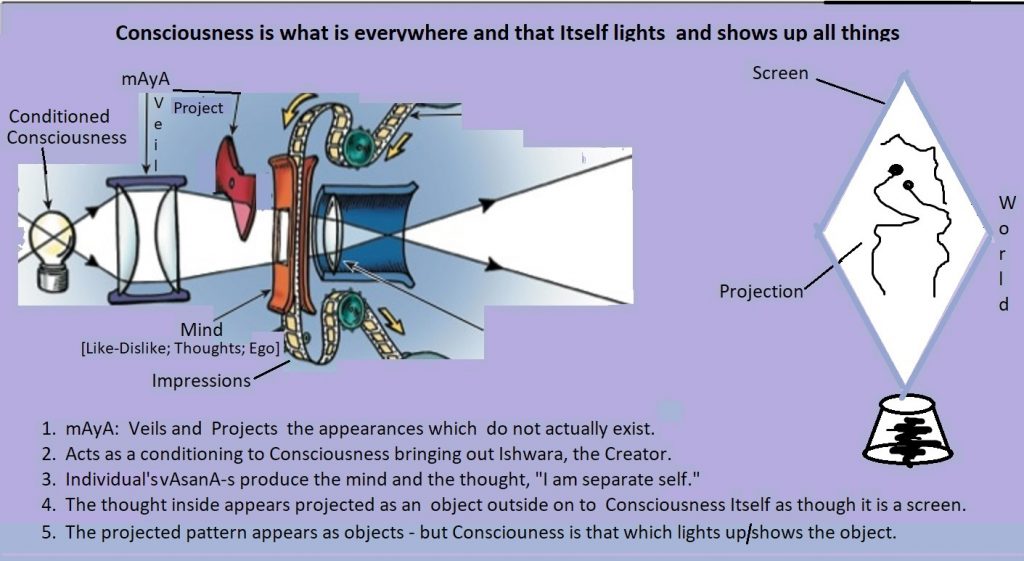Dennis raised a question on how one can conclude that the word “this” in the 3.14.1, chAndogya would mean “the ‘Universal’ substratum of the world and not the nAma-rUpa-vyAvahAra which are the perceivables.” His contention is that “this” refers to the percept itself.
If what is directly available for the five sensory organs + mind is itself brahman, neither the Upanishads nor the Advaitic teachers right from Gaudapada, Shankara and so on need to have taken any trouble at all to point out to the seeker what brahman is. On the other hand, all the teachers go to considerable pains to explain that what is available to perception “veils” the Reality, the Substratum and that what is available for perception is a superimposed “falsity” out of our ignorance.
Shankara, in fact, is so tired of repeatedly pointing this fact in all his bhAShya-s that at 2.1.22, BSB, he writes out of exasperation that “We Continue reading

